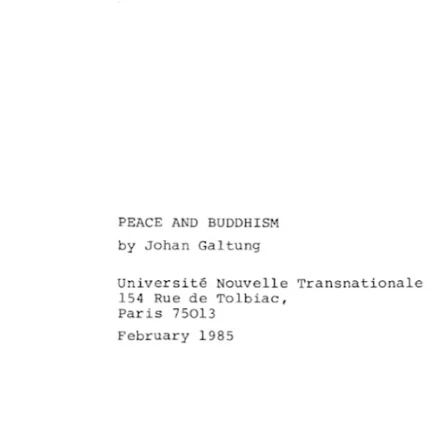ดุษฎีนิพนธ์ฉบับนี้เป็นการวิจัยเชิงคุณภาพ มีวัตถุประสงค์ คือ 1) ศึกษาบริบทการพัฒนาสมรรถนะและทักษะแรงงานภาคเอกชนในเขตเศรษฐกิจพิเศษมุกดาหาร 2) ประยุกต์ใช้หลักสันติวิธีสำหรับการพัฒนาสมรรถนะทางกายและจิตของแรงงานภาคเอกชนในเขตเศรษฐกิจพิเศษมุกดาหาร และ 3) เสนอแนวทางการพัฒนาสมรรถนะและทักษะแรงงานภาคเอกชนในเขตเศรษฐกิจพิเศษมุกดาหารโดยหลักสันติวิธี ประชากรที่ศึกษา คือ ผู้ให้ข้อมูลสำคัญซึ่งเป็นผู้ประกอบการ พระสงฆ์ และนักวิชาการที่เกี่ยวข้องกับการพัฒนาเขตเศรษฐกิจพิเศษมุกดาหาร จำนวน 15 คน / รูป โดยเก็บข้อมูลด้วยวิธีการสัมภาษณ์เชิงลึก
ผลการวิจัยพบว่า
1)ภาคเอกชนขาดข้อมูลและแนวทางการพัฒนาสมรรถนะและทักษะแรงงานภาคเอกชนในเขตเศรษฐกิจพิเศษมุกดาหารโดยหลักสันติวิธีที่ชัดเจน ต้องการให้ภาครัฐสนับสนุน
เชิงนโยบายเพื่อการพัฒนาสมรรถนะและทักษะแรงงานที่ยั่งยืนและเหมาะสมกับเขตเศรษฐกิจพิเศษมุกดาหาร
2) ภาคเอกชนมีความกังวลเรื่องการขาดแคลนแรงงานที่มีสมรรถนะและทักษะ ต้องการให้มีการฝึกสมรรถนะและอบรมทักษะให้เตรียมพร้อมต่อการทำงานในเขตเศรษฐกิจพิเศษมุกดาหาร
3)ภาคเอกชนขาดประสบการณ์การฝึกฝนให้แรงงานสามารถพัฒนาสมรรถนะและทักษะแรงงานโดยหลักสันติวิธี ต้องการให้มีกระบวนการและหลักการฝึกสมรรถนะและอบรมทักษะอย่างเป็นรูปธรรม
องค์ความรู้ที่เกี่ยวกับการพัฒนาสมรรถนะและทักษะแรงงานโดยสันติวิธี ได้นำหลักภาวนา 4 คือ กายภาวนา (การพัฒนาด้านร่างกาย) ศีลภาวนา (การพัฒนาด้านสังคม) จิตภาวนา (การพัฒนาด้านอารมณ์) และปัญญาภาวนา (การพัฒนาด้านความรู้) ที่ได้สังเคราะห์องค์ความรู้เชิงหลักธรรมจากพระราชนิพนธ์พระมหาชนก โดยการพัฒนาด้านร่างกายและการพัฒนาด้านสังคมเป็นการพัฒนาเชิงทักษะ (กาย) ส่วนการพัฒนาด้านอารมณ์และการพัฒนาด้านความรู้
เป็นการพัฒนาเชิงสมรรถนะ (จิต) ซึ่งพบว่าหลักภาวนา 4 เป็นหลักสันติวิธีเพื่อการพัฒนามนุษย์ ทั้งนี้ ปัจจัยที่จะสร้างแรงงานภาคเอกชนในเขตเศรษฐกิจพิเศษมุกดาหารให้พัฒนาได้นั้นต้องประกอบด้วย
1) แรงงานต้องมีความยืดหยุ่นและสามารถปรับตัวให้เข้ากับการพัฒนาสมรรถนะและทักษะอย่างเหมาะสม (Resilience : R) 2) แรงงานได้รับค่าจ้างและสวัสดิการที่เพียงพอต่อการดำรงชีพ (Economic Security : E) 3) แรงงานต้องได้รับการอบรมฝึกฝนทักษะที่จำเป็นต่อการประกอบอาชีพตามมาตรฐานแรงงาน (Standards of Training : S) 4) แรงงานต้องมีฐานรากจากจิตใจที่ดีและมีสันติธรรม มีเมตตาโอบอ้อมอารี มีจิตอาสา มีความปรารถนาดี ไม่ต้องการให้เกิดความขัดแย้งที่สร้างความรุนแรง และมีความฉลาดทางอารมณ์ (Kind-hearted Action : K) 5) แรงงานต้องพัฒนางานของตนเองด้วยความรู้ที่ผ่านกระบวนการสั่งสมความรู้และความเชี่ยวชาญจนเกิดชิ้นงานจริง เกิดเป็นทรัพย์สินทางปัญญา (Intellectual Property : I) 6) แรงงานต้องยึดมั่นและปฏิบัติตามกฎระเบียบและมีวินัยในการทำงาน (Legal Forces : L) และ 7) แรงงานต้องมีภาวะผู้นำ (Leadership : L)
องค์ความรู้ใหม่ที่ค้นพบ คือ โมเดลการพัฒนาสมรรถนะและทักษะแรงงานโดยสันติวิธี เรียกเป็นโมเดลตัวย่อว่า “RESKILL” หมุนเป็นวัฏจักร เมื่อพัฒนาตัวใดตัวหนึ่งจะต้องพัฒนา ตัวอื่น ๆ ไปพร้อมกัน จึงจะเป็นการพัฒนาทั้งกายและจิตทั้งสองด้าน โดยต้องคำนึงถึงความพร้อมของแรงงานเป็นสำคัญ
A qualitative research study was conducted to investigate the context of labour competency and skill development for the private sector in the Mukdahan special economic zone (SEZ). The objectives of the study were to:
- Study the context of labour competency and skill development for the private sector in the Mukdahan SEZ.
- Apply the principles of peaceful means for the development of physical and mental competence for private sector labourers in the Mukdahan SEZ.
- Propose a guideline for the development of competences and skills for private sector labourers in the Mukdahan SEZ by way of a peaceful means.
The study population consisted of 15 key informants who were entrepreneurs, monks, and academics involved in the development of the Mukdahan SEZ. Data was collected through in-depth interviews.
The results of the study revealed the following:
- The private sector in the Mukdahan SEZ has lacked information and skills for developing labour competency and skill development by way of peaceful means. The private sector requires government policy support to create labour competency and skill development that is sustainable and appropriate for the Mukdahan SEZ.
- The private sector in the Mukdahan SEZ is concerned about a shortage of qualified and skilled labourers. They need to receive both competency and skill training in order to work in the Mukdahan SEZ.
- The private sector in the Mukdahan SEZ has lacked expertise in training labourers to enhance their competencies and skills by way of peaceful means. The process and principles of physical and mental skill training must be implemented in the private sector.
The body of knowledge on the development of competencies and skills for labourers by peaceful means is Bhāvanā (the Four Kinds of Development), comprising Kāya-bhāvanā (Physical Development), Sīla-bhāvanā (Moral Development), Citta-bhāvanā (Emotional Development), and Paññā-bhāvanā (Wisdom Development). This body of knowledge is based on Dharma principles from the royal work called “The Story of Mahājanaka”. The principles found in Bhāvanā are that physical and moral development are skill-based development (Kāya), while emotional and wisdom development are mental development (Citta). It is also found that Bhāvanā is a principle of peaceful means for human development.
In this regard, the factors that will create the development of private sector labourers in the Mukdahan SEZ must involve the following:
- Resilience: Labourers must be resilient and able to adapt themselves to the development of competencies and skills appropriately.
- Economic security: Labourers are entitled to proper pay and benefits that are adequate for their livelihood.
- Standards of training: Labourers must be trained in the key skills required for their occupation in accordance with labour rules.
- Kind-hearted action: Labourers must be driven by a good heart and peace, compassion, volunteerism, good intentions, emotional intelligence, and a desire to avoid conflicts that lead to violence.
- Intellectual property: Labourers must develop their own work within their knowledge through the process of knowledge accumulation and competence until it is recognized as intellectual property.
- Legal forces: Labourers must follow and conform to regulations and work standards.
- Leadership: Labourers must have leadership skills.

